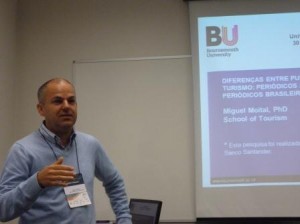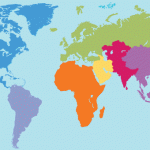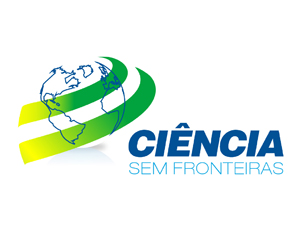 I recently returned from Brazil, where I spoke at two tourism conferences in São Paulo. Attendance of these two conferences follows from the work I have been carrying out about the barriers to publishing in English Language Tourism Journals (ELTJ) by Brazilian tourism academics. At present, only around 30 articles have been published in ELTJ by academics affiliated to Brazilian institutions. In order to understand the reasons behind this rather low level of publication, in April I interviewed 17 academics from 5 different universities.
I recently returned from Brazil, where I spoke at two tourism conferences in São Paulo. Attendance of these two conferences follows from the work I have been carrying out about the barriers to publishing in English Language Tourism Journals (ELTJ) by Brazilian tourism academics. At present, only around 30 articles have been published in ELTJ by academics affiliated to Brazilian institutions. In order to understand the reasons behind this rather low level of publication, in April I interviewed 17 academics from 5 different universities.
The first conference was the IX ANPTUR – The annual conference of the Brazilian Association of Tourism Research and Post-graduation (Anhembi Morumbi University, 30-31 August). This is the third time I have attended the ANPTUR conference, having been a keynote speaker both in 2008 and 2010. My active participation in this year’s conferences involved running a 2h30m workshop on the differences between publishing in a Brazilian and English language tourism journals. There are many differences both in terms of the research process on which the publication is based, and how the research is communicated. However, in my interviews with Brazilian academics it became clear that the overwhelming majority were not aware of such differences. This is not surprising because virtually none had gone through the process of submitting a paper to these journals.
The second conference was the V CLAIT – Latin American Tourism Research Conference (São Paulo University, 3-5 September). The main involvement in this conference was through presenting the results of a review of the 28 publications in tourism ELJ by Brazilian academics. Some conclusions from the review include:
- The number of tourism publications by academics affiliated to Brazilian institutions is remarkably low, which leads to a lack of international visibility. However, those that exist tend to be of a good standard (as given by the ABS rating);
- The first author tends to be Brazilian and the majority of papers did not involve foreign academics. However, publication in English language journals is still somewhat dependent on collaboration with foreign academics or Brazilian academics who have studied in the UK/USA, notably when it comes to publishing in the top journals (3/4-rated);
- Articles tend to use primary data collection, however the methods section of those who claim to have collected primary data is not always very detailed (specially when interviews and/or content analysis are used).
- From the three areas of tourism, hospitality and events, past research has focused mainly on tourism, and to a less extent on the hospitality sector. Only one article on events was published.
- Studies tend to be biased towards studying the relationship between the public sector and tourism, often from a sustainability/ecology/environment point of view, at the expense of the private sector/business side of the industry.
I was also invited to chair one of the sessions on Tourism & Marketing. On the 6th of September there was a TEFI (Tourism Futures Education Initiative) meeting, which I also attended.
















 Expand Your Impact: Collaboration and Networking Workshops for Researchers
Expand Your Impact: Collaboration and Networking Workshops for Researchers Visiting Prof. Sujan Marahatta presenting at BU
Visiting Prof. Sujan Marahatta presenting at BU 3C Event: Research Culture, Community & Can you Guess Who? Thursday 26 March 1-2pm
3C Event: Research Culture, Community & Can you Guess Who? Thursday 26 March 1-2pm UKCGE Recognised Research Supervision Programme: Deadline Approaching
UKCGE Recognised Research Supervision Programme: Deadline Approaching ECR Funding Open Call: Research Culture & Community Grant – Apply now
ECR Funding Open Call: Research Culture & Community Grant – Apply now ECR Funding Open Call: Research Culture & Community Grant – Application Deadline Friday 12 December
ECR Funding Open Call: Research Culture & Community Grant – Application Deadline Friday 12 December MSCA Postdoctoral Fellowships 2025 Call
MSCA Postdoctoral Fellowships 2025 Call ERC Advanced Grant 2025 Webinar
ERC Advanced Grant 2025 Webinar Update on UKRO services
Update on UKRO services European research project exploring use of ‘virtual twins’ to better manage metabolic associated fatty liver disease
European research project exploring use of ‘virtual twins’ to better manage metabolic associated fatty liver disease